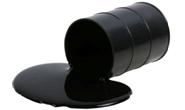Prices

February 2, 2015
USW Oil Workers Strike
Written by Sandy Williams
United Steel Workers in the oil industry went on strike on Sunday after failing to agree on new labor contracts. The strike will affect approximately 3,800 employees at nine U.S. sites. It is the largest national USW walkout since a 1980 strike that lasted three months.
About 10 percent of the oil refinery capacity will be affected according to Bloomberg Business. So far only one of the nine plants has curtailed production due to the walkout. Bloomberg estimates that a full walkout could “disrupt as much as 64 percent of U.S. fuel output.”
According to the USW, union officials have rejected five offers made by Royal Dutch Shell Plc on behalf of companies including Exxon Mobil Corp. and Chevron Corp. since talks began Jan. 21. Refineries in Texas, California, Kentucky and Washington state are affected.
USW workers are asking for substantial pay increases, rules to safeguard employees from fatigue and protection from job loss to contract workers.
“The oil companies do not want to work with us to improve the workplace and safety at oil refineries and facilities,” said Tom Conway, USW International vice president of administration. “This industry is the richest in the world and can afford to make the changes we offered in bargaining. The problem is that oil companies are too greedy to make a positive change in the workplace and they continue to value production and profit over health and safety, workers and the community.”
The USW said that Shell Oil Company will lead the national talks between the energy sector and union members at the more than 64 refineries and 230 facilities in the U.S. “Any agreement USW and Shell reaches will serve as the model for a national framework for a new three-year contract,” said the USW.
British Petroleum avoided a walkout on Sunday at the BP Whiting refinery when the two sides agreed to a rolling 24 hour extension.
BP spokesman Scott Dean said, “The contract extension shows that both sides continue to negotiate diligently and in good faith. We remain hopeful that we can reach a mutually beneficial agreement that will lay the groundwork for a competitive business, safer operations, good jobs and economic opportunity for years to come.”







